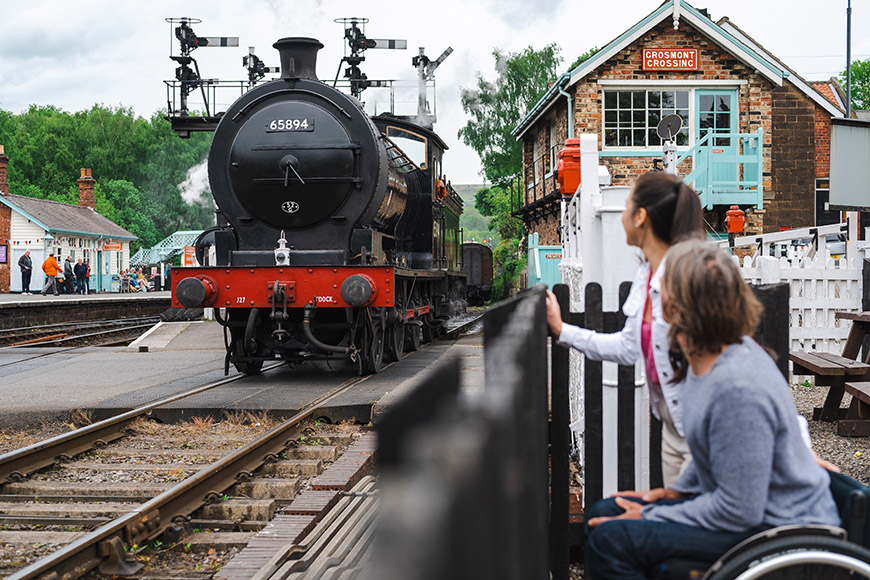Grosmont (pronounced 'Growmont') was once a hive of industry but is now a peaceful village huddled in the Esk Valley.
There are some tell-tale signs to the village’s character as you approach, notably the plume of steam and the railway tracks disappearing into a tunnel.
This, after all, is where ‘the father of railways’ George Stephenson's original railway from Whitby was being built that would go onto link to Pickering. The discovery of ironstone here made the development of the railway feasible and so back in the 1830s the village, then known simply as Tunnel, went from isolated hamlet to being a hotbed of industry almost overnight.
Today peace has returned but the railway remains very much the hub of the village, courtesy of the heritage steam train and the modern Esk Valley line taking passengers on a scenic journey between Middlesbrough and Whitby.

Even before leaving the National Park car park, there are hints of Grosmont’s past as this was the site of a major ironworks in Victorian times where the surrounding mines would supply 1,000 tonnes of iron a week to feed the insatiable appetite of the three furnaces.
Where once brick chimneys stood, mine shafts were dug and tracks laid, nature has reclaimed these spaces leaving just gentle nods to their existence in the form of lumps and bumps in the landscape.
Another part of Grosmont’s heritage is also tied to the ironstone boom. Pop your head into the village shop, which is Britain’s oldest retail cooperative, established in 1867, and imagine those times when it served the scores of workers and their families.
